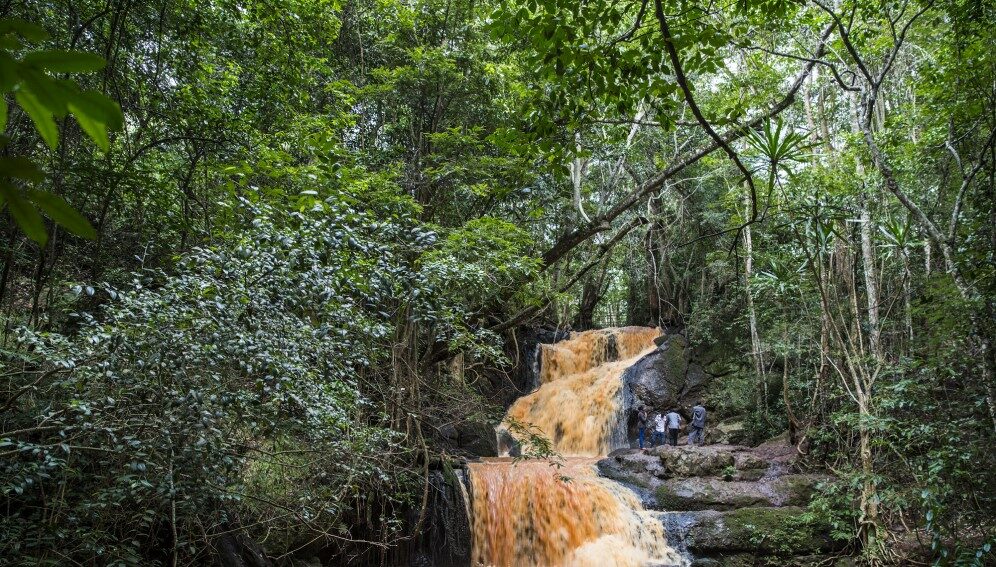By: Michael Kaloki
Send to a friend
The details you provide on this page will not be used to send unsolicited email, and will not be sold to a 3rd party. See privacy policy.
“Always do the right thing, public opinion notwithstanding” – This is what Wanjira Mathai’s mother, the late Kenyan environmentalist and Nobel Peace Prize winner Wangari Maathai, instilled in her children.
Mathai is now blazing her own trail, as the vice-president and Africa regional director at the non-profit World Resources Institute, a board member at her mother’s grassroots Green Belt Movement, and a Clean Cooking Alliance leadership council member.
Mathai tells SciDev.Net why fighting for climate justice has taken a leading role among her many commitments.

Wanjira Mathai, Environment leader. Credit: Wanjira Mathai
There has been a debate in Kenya over the years about whether forest communities should be able to cut down trees for their livelihoods and cooking fuel. Would you in this case understand the concerns of the communities in regards to their economic livelihood?
Absolutely. We have to give communities alternatives. We cannot say ‘don’t cut trees’ and not give alternative sources of energy.
Africa has the greatest need for energy access, 70 per cent of people on the African continent don’t have access to electricity. They are using biomass and other sources of energy. So, we have got to create and invest in alternatives.
It is not the case that the communities here in Kenya need to cut the forests, it is because we as a country have not prioritised access to energy for these communities. Cooking with biomass kills. We are losing millions of people around the world, thousands of people in Kenya alone, due to indoor air pollution complications.
We have to find a way for clean cooking to be a priority.
Wanjira Mathai sits down with SciDev.Net podcast Africa Science Focus to talk trees, climate change, and Africa’s future.
You have said that women are often the custodians of food in communities, and that with the degradation of the environment comes interference with food systems. Do you feel women in Sub-Saharan African communities are adequately involved in managing the environments they live in?
We obviously have a long way to go. Giving access to land tenure to women is extremely important and that is not something we see that often. The Green Belt Movement works with women at the grassroot level, inspiring them to take charge of the environment, take charge of their food production and also how to manage the natural resources around them.
It is true that women are often the first to feel the impacts of a degrading landscape. They are the ones who fetch the water and they are having to walk further and further away to find it. They are the ones looking for firewood and now they are finding that the firewood is not that close to them.
It is women who responded first to the Green Belt Movement’s call to action to restore the landscapes and restore our ability to produce healthy food.
Looking ahead to the COP27 climate summit in Egypt in November. How will you be involved? And what’s at stake for Africa?
COP27 is a crucial COP [Conference of the Parties to the UN climate change convention] for Africa. It will be an African COP and it will be an adaptation COP. Adaptation is the single most important issue, as we face the impact of climate change and as science gets clearer about how devastating those impacts will be if we breach the 1.5 degree increase limit.
The African COP will also focus on loss and damage [the irreversible impacts of climate change]. The issue of loss and damage saw the light of day in COP26, but it is going to be a crucially important issue in COP27.
The reason this is important is the issue of climate justice. The fact that we as the African continent have contributed only four per cent to global emissions, but are already suffering such significant impacts from climate change. This is absolutely unjust. There can be no climate justice without addressing loss and damage.
You are the chairperson of the Wangari Maathai Foundation, which mentors youth on environmental matters. Why do you feel mentorship is important?
The Wangari Maathai Foundation is inspired by the work of my mother, she attributed the inspiring things she did to the fact that her childhood was coloured by an acknowledgment and love for the natural world.
Mentorship is crucial, because Africa is the youngest continent in the world – in Kenya the average age is 35 years old, maybe even younger now. We have a lot of work to do, because this is the constituency of young people who will lead us into the future.
So, if we can inspire young people early and give them a love for nature, they will be different for it and they will be the next Wangari Maathai.
This interview has been edited for clarity and brevity.
This piece was produced by SciDev.Net’s Sub-Saharan Africa desk.















